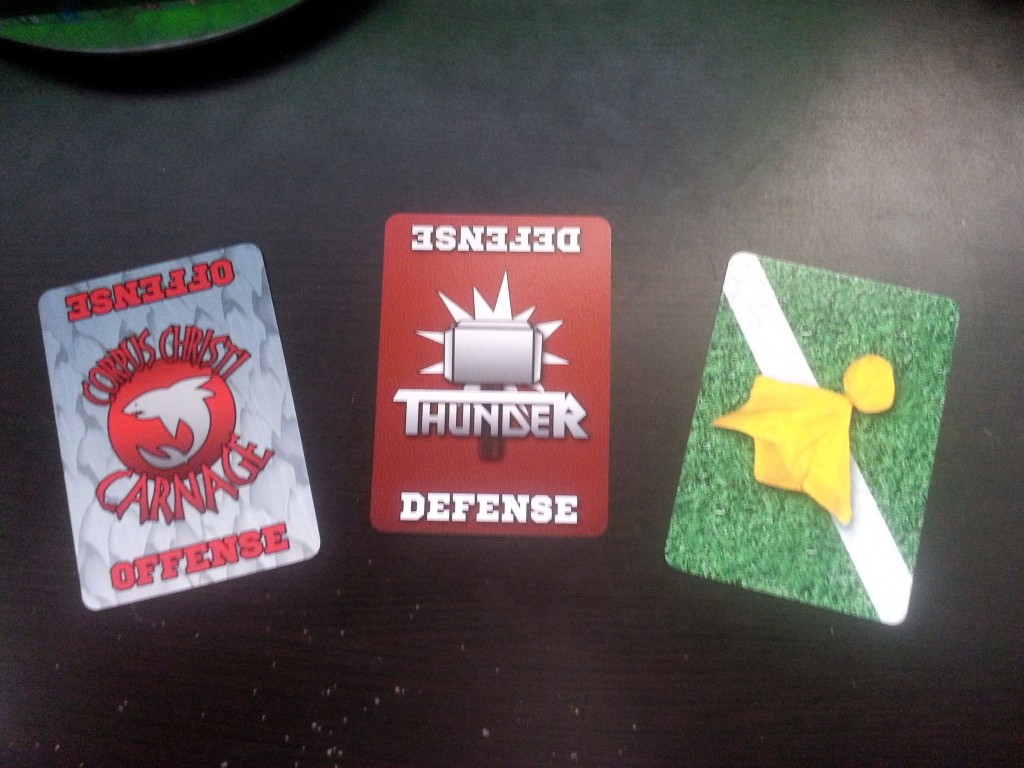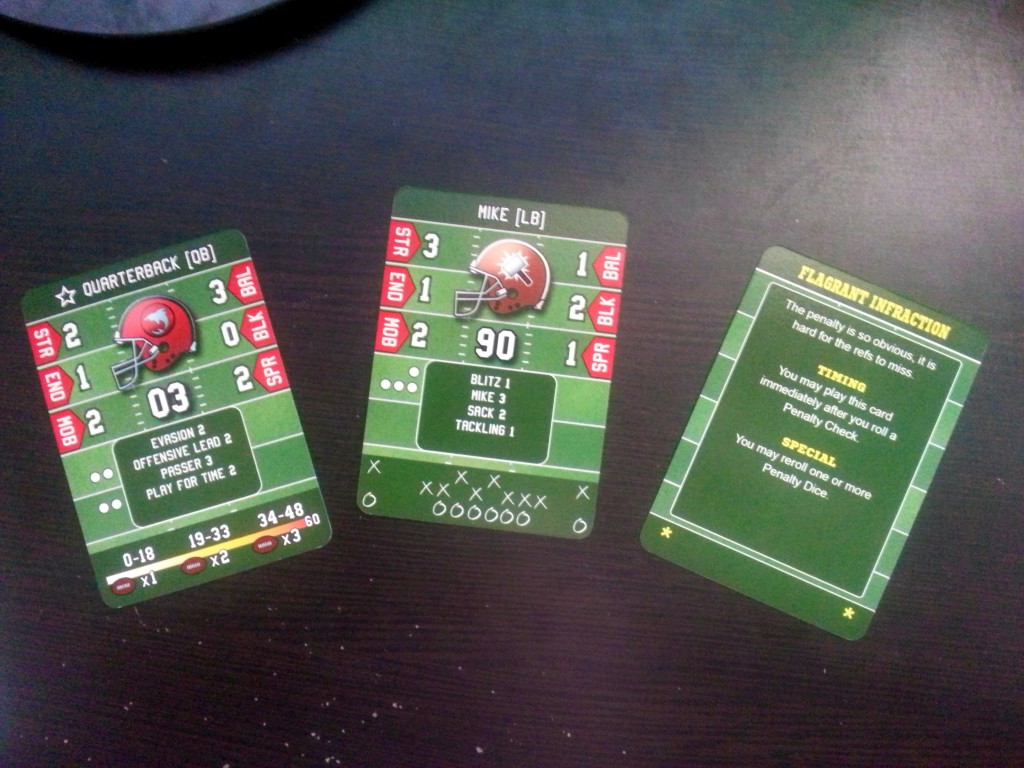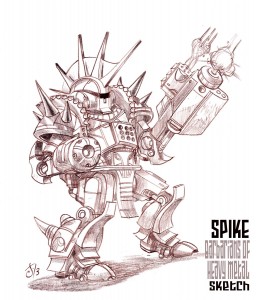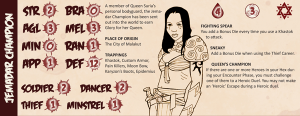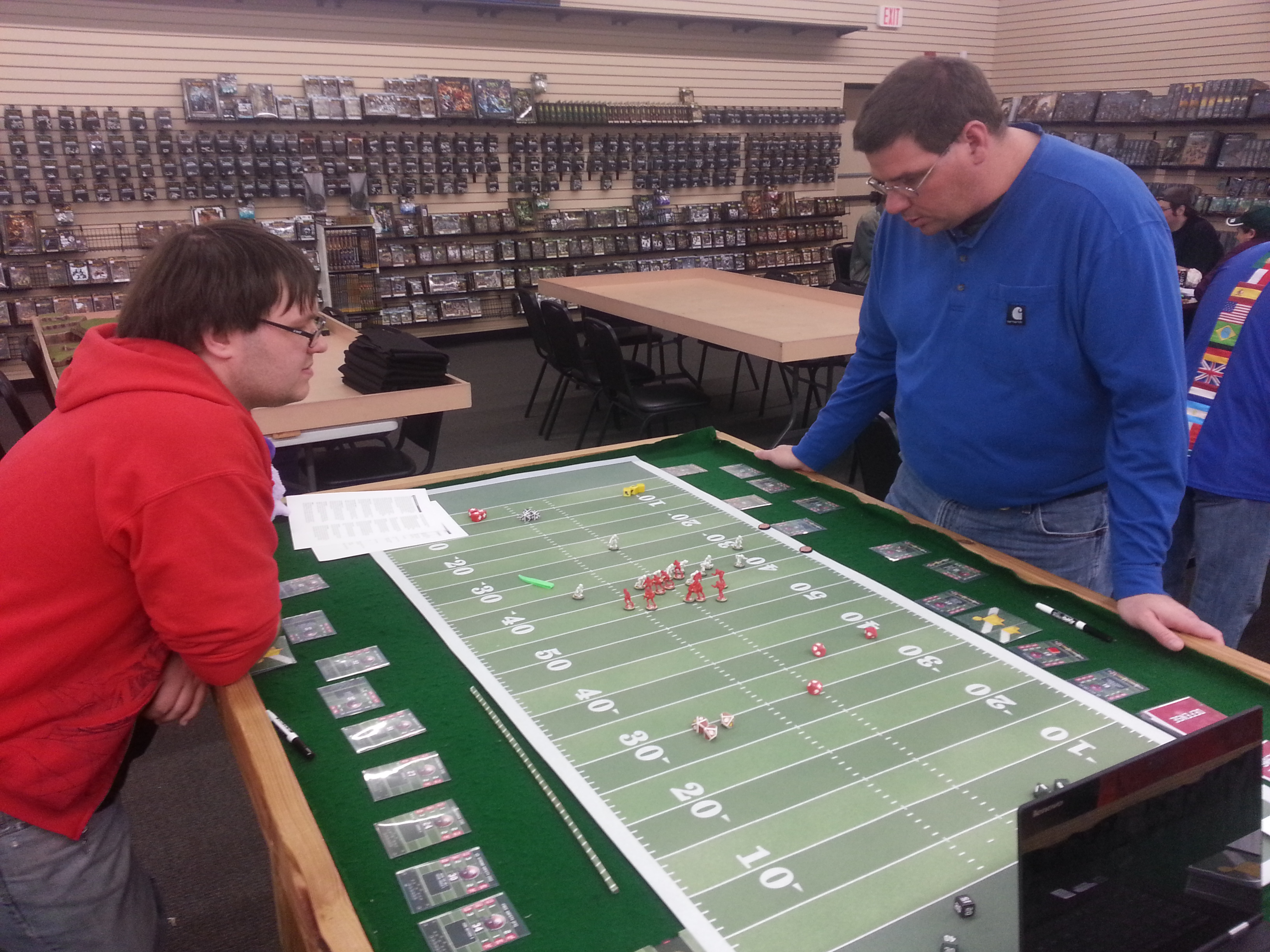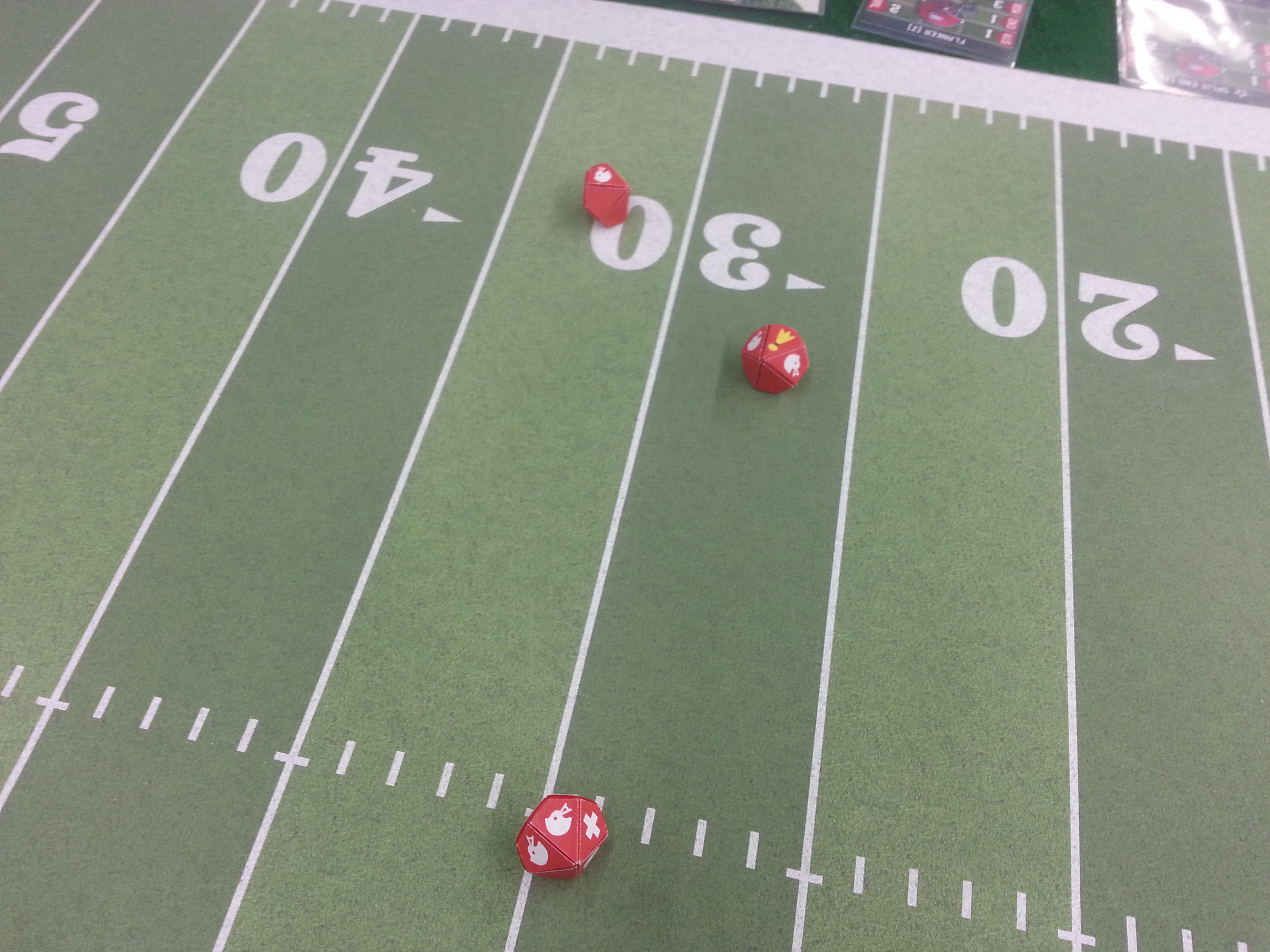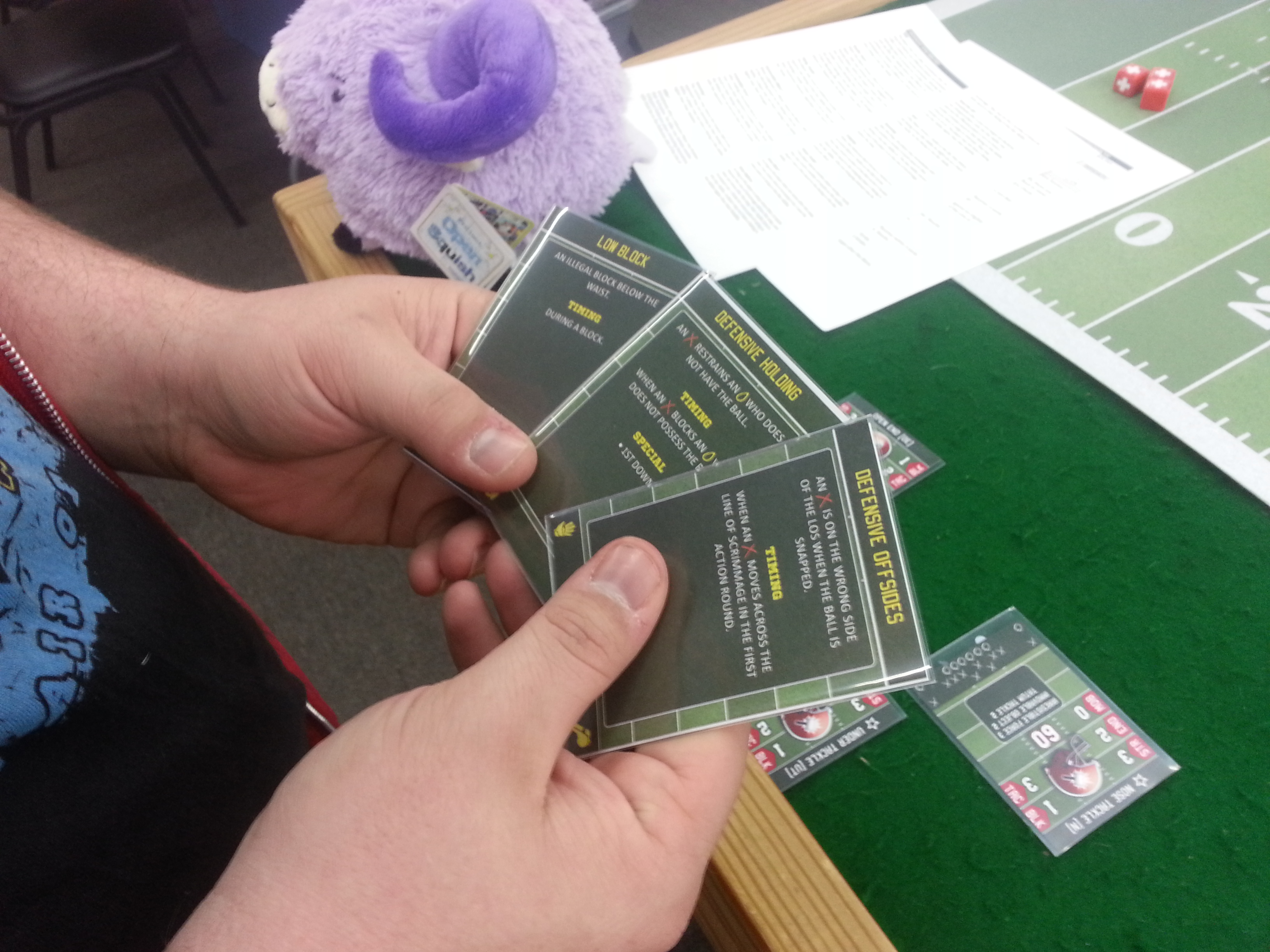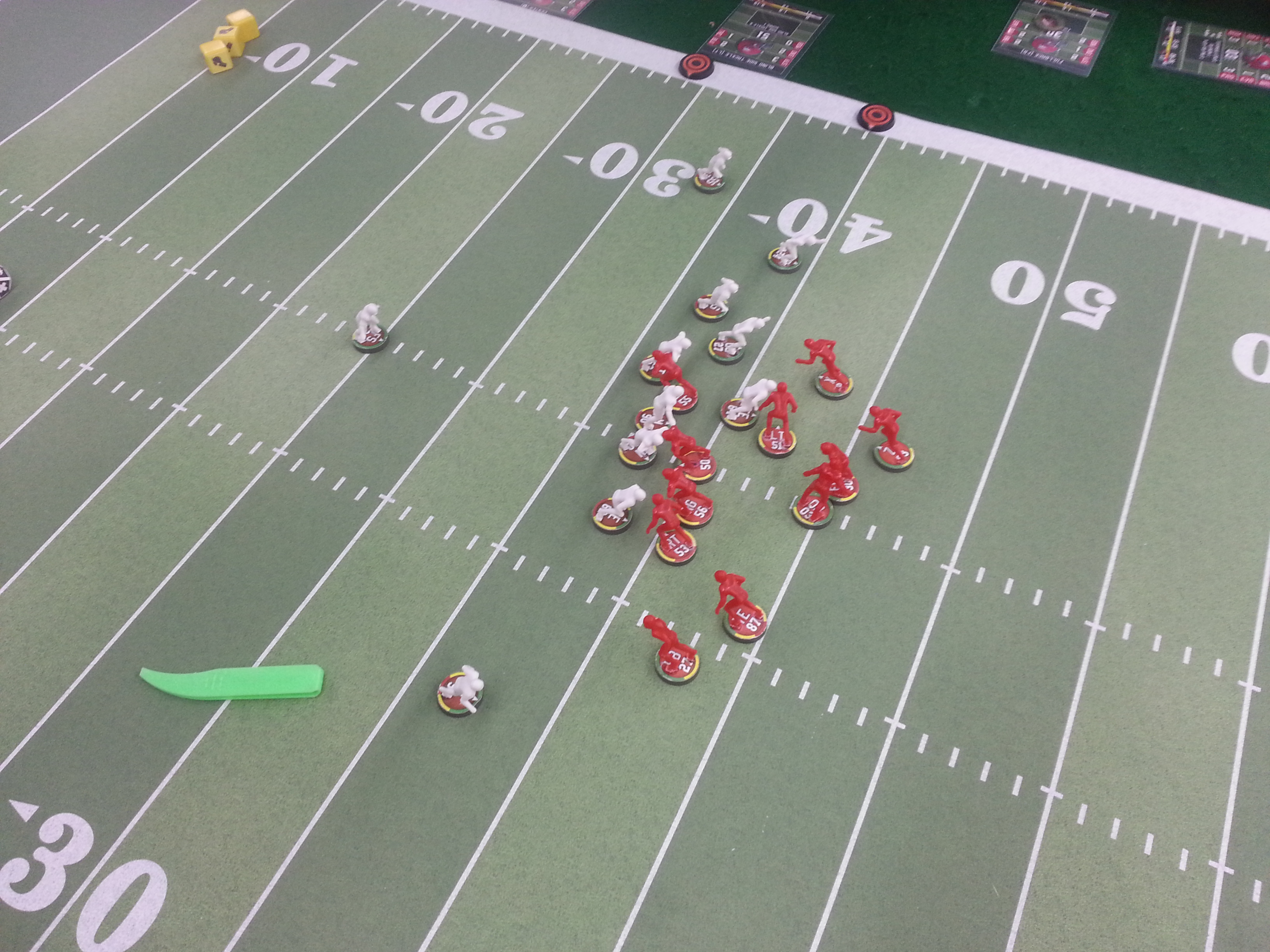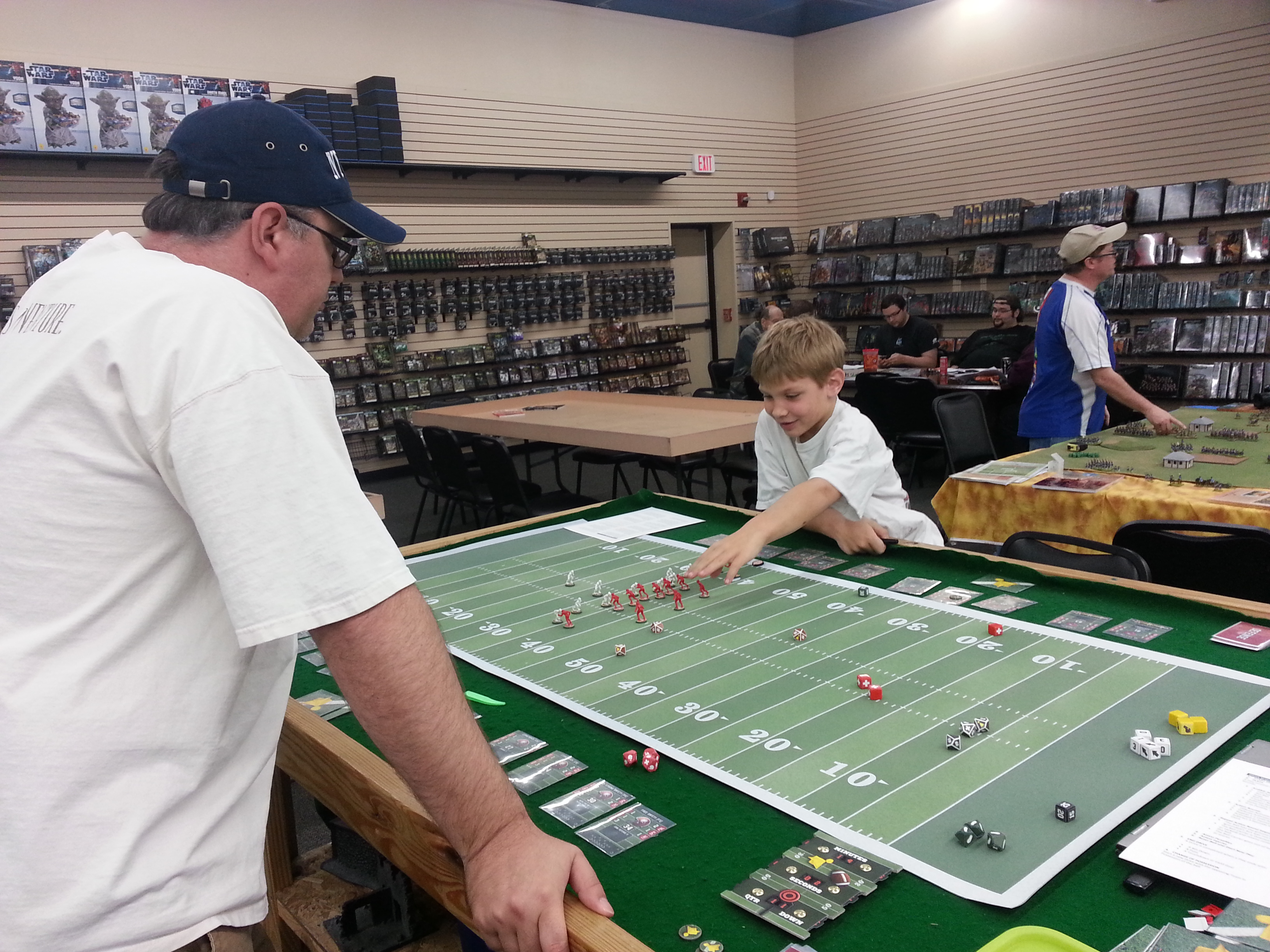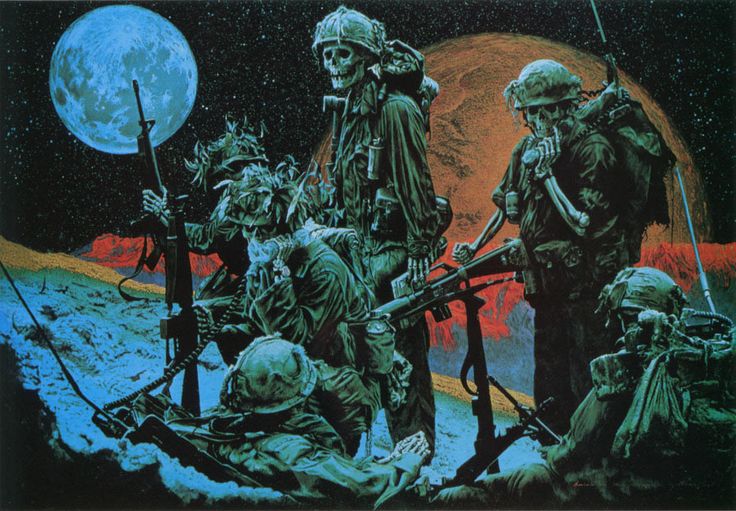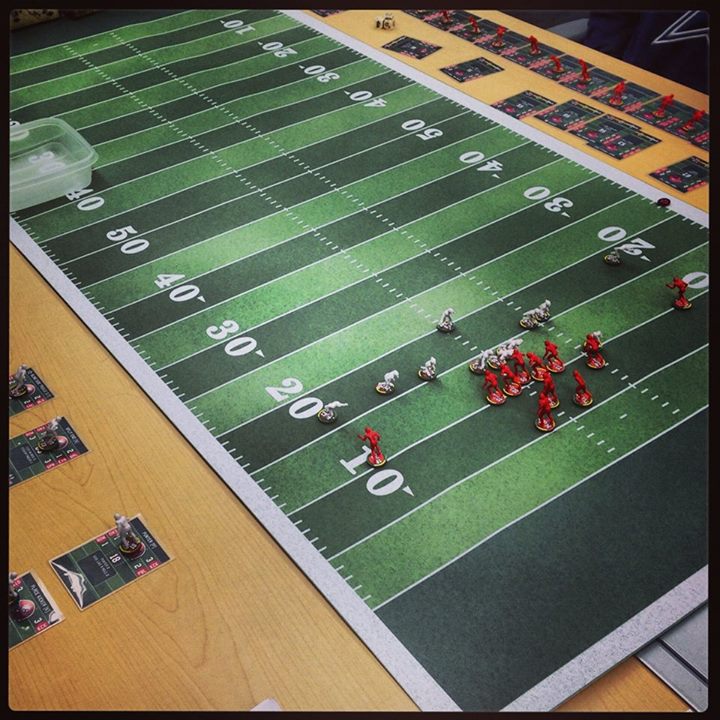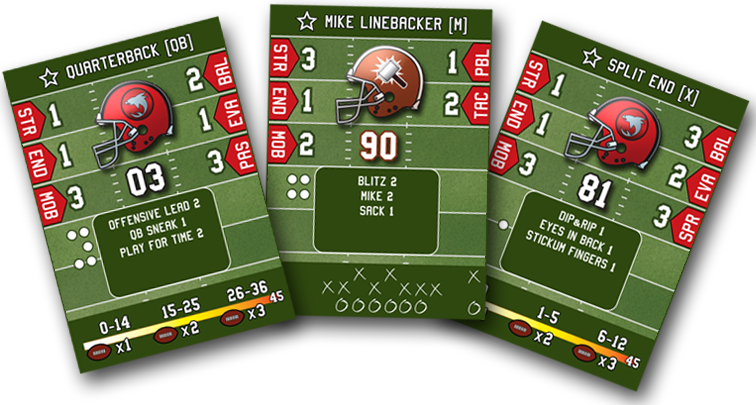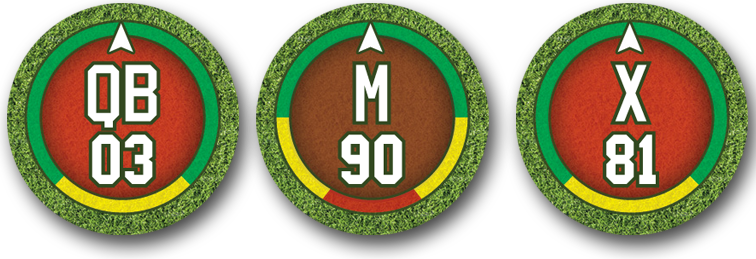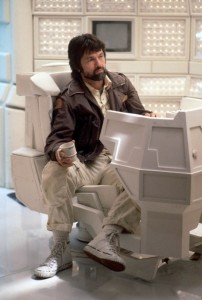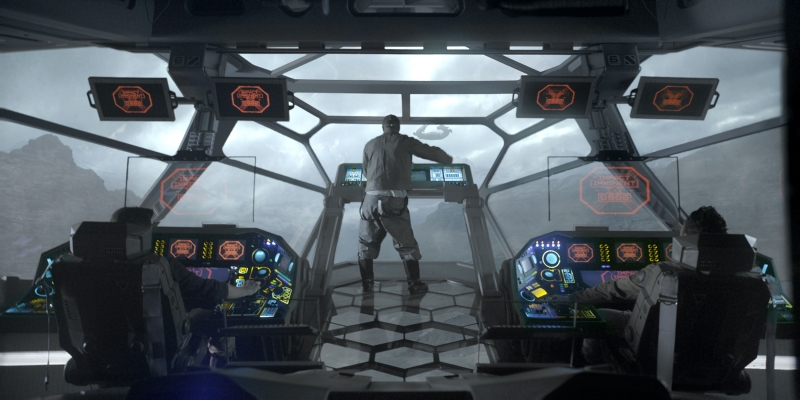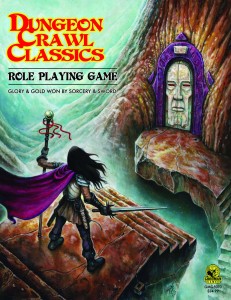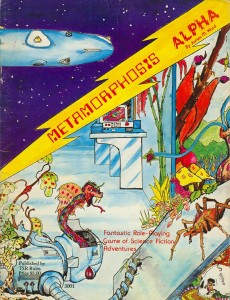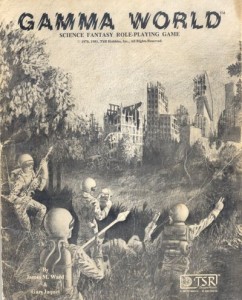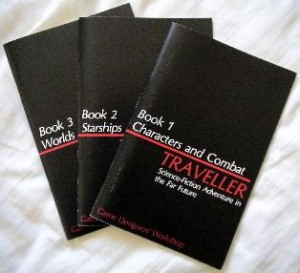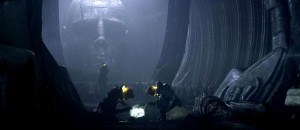As this is a supplement for Dungeon Crawl Classics, it will use the bulk of the DCC rules set for basic stuff like Attributes, Combat, Skills, etc. As a silence fiction game, however, we will need to add a few new rules to the game that are specific to that genre (as well as alter some of the existing systems, which I’ll be talking about more extensively in later posts), in much the same way as I did in Barbarians of the Aftermath.
TECHNOLOGY
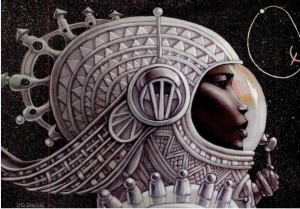 Perhaps the biggest difference between a fantasy setting and a science fiction setting is the growth in the complexity of technology. Most people can be assumed to able to use almost 99% of fantasy technology (hammer & iron spikes, lanterns, tinder-boxes, ten foot poles, etc.) with specialists in a few specific trades, like blacksmiths and wainrights, and the most advanced technology, reading and writing, only available to those with the proper education.
Perhaps the biggest difference between a fantasy setting and a science fiction setting is the growth in the complexity of technology. Most people can be assumed to able to use almost 99% of fantasy technology (hammer & iron spikes, lanterns, tinder-boxes, ten foot poles, etc.) with specialists in a few specific trades, like blacksmiths and wainrights, and the most advanced technology, reading and writing, only available to those with the proper education.
In the modern day, however, we are constantly being reminded of how much there is to know and how little of it we actually understand. Sure, the smartphone is ubiquitous, but how many people can strip and clean a firearm? And of those, how many know to do the same with military grade weapons? And how many military weapons are so complex that you can’t repair them in the field? We could make the same point about driving a car being different from flying a plane to flying a fighter jet and the differences in programming a website versus programming an operating system, but you get the point: technology has turned mankind into a species of specialists. So in the game, it just doesn’t make sense to let everyone use every piece of technology equally.
As such, each PC will have a Technology Base that will be gained from their class, based upon the type of technology they are trained and competent with. Their 0-Level Occupation will also provide them with one, very specific, piece of technology they are familiar with, which may or may not fit inside that Tech Base. In a way, you can think of the Technology Base as a skill set for the operation, repair and basic understanding of the principles behind devices that fall within that base (including alien tech that bears a strong resemblance to it). Those familiar with the tech roll a d20 as their Action Die. Those unfamiliar with it (but, considering the level of knowledge and experience needed to brave the void, probably cross-trained in it) roll a d10 as their Action Die, just as with skills in DCC.
Each piece of equipment will have one or more Tech Categories that define where it fits within the class structure of the game: General (which is available to pretty much everyone), Combat, Transport (planet-side vehicles & mechanics), Scientific, Robotic and Astronautic (spacecraft & engineering). There will also be three other Tech Categories that are so specialized that only those classes that possess them can figure them out and use them: Experimental (weird super-science type gadgets and alien tech), Psychic and Synthetic (everything to do with androids).
Of course, it should go without saying that these Technology Bases not only represent technological competence, but overall skills sets as well, so a character with training in Transport is probably a general mechanic as well as a driver, which means he would be the guy to call when the base AC is on the fritz. Need to fix a Cybertank, however? You’ll need a guy who is knowledgeable in both Transport and Robotics to get the d20 Action Die..
RESOURCES
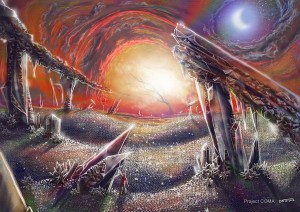 Another difference in the two genres is that characters who pillage the void are not going to come home with ready to spend piles of shiny coins. They are going to come home with resources that they must sell, and nothing that you spend weeks and years risking death in the void for is going to sell for cheap. Combine that with the fact that certain equipment, like spacecraft components, are going to be exorbitantly expensive, and you can see how keeping account of money in bits and pieces can become a bit unwieldy.
Another difference in the two genres is that characters who pillage the void are not going to come home with ready to spend piles of shiny coins. They are going to come home with resources that they must sell, and nothing that you spend weeks and years risking death in the void for is going to sell for cheap. Combine that with the fact that certain equipment, like spacecraft components, are going to be exorbitantly expensive, and you can see how keeping account of money in bits and pieces can become a bit unwieldy.
Instead of that, each character will have a Resource attribute, which works like the Luck Attribute in DCC, in that you will have an Attribute Score that goes up and down as you use your resources and add to them, as well as a modifier that doesn’t change (to represent your lifetime credit rating based upon your past dealings) and is used for when you try to get things above your current Resource Attribute level.
Buying things is simple: if you have the Resources, you take it and then reduce your Resource rating accordingly. Characters can also pool their Resources to buy bigger things. You want that fancy new fuel converter for your ship? Better pool your resources, team!
If the item is outside of the individual or team’s current available Resources, you can always make a Resource Roll, which represents buying things on credit. In this case, with an added difficulty based upon the difference between the cost and the available Resources. The character with the highest Resource modifier gets to add that to the roll. If you succeed, you get the item on credit with minimal to no initial outlay, but must pay back the remainder with interest the next time you come in from the void, or else: consequences (which can mean a variety of things based upon the situation and nature of those with whom the characters did business).
Resources are also used when you are trying to use the power of your wealth to influence others. In such cases, a Resource roll is made just like a Luck roll and, if it succeeds, you reduce your Resources by 1 and get your way.
FIREARMS
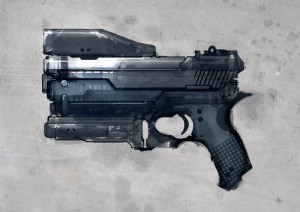 Of course, firearms in science fiction would make a mockery of any fantasy arms and armor, magical or otherwise, due to high penetration power and rapid rate of fire often combined with a large area of effect. This of course requires a few new rules.
Of course, firearms in science fiction would make a mockery of any fantasy arms and armor, magical or otherwise, due to high penetration power and rapid rate of fire often combined with a large area of effect. This of course requires a few new rules.
Damage for a firearm will be very similar to other ranged weapons in DCC. After all, they both poke holes in you, it’s just that one dose it faster, possibly does it to anyone else standing directly behind you and in line with flight path of the projectile and with little regard for cover or armor that isn’t specially designed to stop it. Certain special types of ammunition might make hole a bit bigger (Dum-Dums) or even ‘splody (Gyrojet Rounds), but for the most part, the damage will range from d6 to d12 (with Hit Points representing more than physical damage, of course, but more on that later).
Rapid Fire is fairly easy to model and I’ll likely be doing that by allowing multiple attacks with decreasing die size. Soldiers will be penalized less in die size than other classes, making them a bit more effective.
Ranges are another thing you must take into account. The world record sniper shot is over a kilometer in distance, and energy weapons, like lasers, are unaffected by wind and barely effect by gravity so if you can see it and point at it you can hit it. As a result I’m thinking range is going to play little part unless it is Extreme, which I’ll probably define in the individual weapon descriptions.
Turning to the equipment side of Firearms rules, weapons will fall in line with their Barbarians of the Aftermath counterparts: general types and sizes, not specific makes and models. This, along with a number of upgrade kits, will allow for a wider variety of firearm types, with a minimal amount of rules,and without cornering the GM into any specific setting. I also intend for weapons to be sold in bulk. You spend a Resource point and get to outfit your character based on Armory points that can be spent on customizing your personal weapons stockpile (think Jane from Firefly). A team can do this to build up a communal armory for their ship.
As with Barbarians of the Aftermath, I’m not interested in turning ranged combat into an accounting exercise, especially considering the fact that a single Resource Point’s worth of ammunition could keep a platoon supplied for a month long operation. However, I do want to emphasize the Resource Management aspect of most dungeon-crawl style games. As such, I am looking at a method that mixes limiting carried ammunition but allowing for total reloads when the characters return to the ship.
When characters get into a firefight, no one calmly pulls the trigger for a single shot at their target. No, most folks throw a number of rounds downrange in the direction of their target without even thinking about ammunition expenditures, only stopping after the third or so ‘click click’ noise tells them their weapon is tapped. In the game this will be represented by an ammo check system built into the combat roll (in much the same way as Cleric Disfavor is built into their spell roll) which will occasionally empty their weapon. If they have reloads on them, they may take an Action to do so, but if they don’t, time to find an alternative.
Soldiers will have an advantage here. A trained soldier will learn to control their fire and keep track of their ammo expenditures. I’m thinking of either letting them reroll the first ammo check for a weapon or maybe reducing the number for every level they have in their class. Haven’t decided yet.
SERVITORS
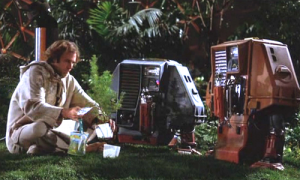 Old school fantasy RPGs have henchmen. Void Hunters will have Robots! Basically, a robot is a henchman who does exactly what you tell them, as soon as you tell them to do it. They still require ‘payment’ in the form of maintenance, and they are very limited in what they can do based upon their programming, but you can send them into the dark corners of the unknown a hundred times or more and they will never object or leave your service (unless they blown apart, eaten or otherwise destroyed by whatever was lurking in said dark corners). Servitors will have some specific types and rules, but for the most part, that describes them.
Old school fantasy RPGs have henchmen. Void Hunters will have Robots! Basically, a robot is a henchman who does exactly what you tell them, as soon as you tell them to do it. They still require ‘payment’ in the form of maintenance, and they are very limited in what they can do based upon their programming, but you can send them into the dark corners of the unknown a hundred times or more and they will never object or leave your service (unless they blown apart, eaten or otherwise destroyed by whatever was lurking in said dark corners). Servitors will have some specific types and rules, but for the most part, that describes them.
Do not confuse Servitors in the game with Synthetics, who are self-aware characters and, hence, a PC class. Outside of their programming, servitors are dumb as a box of rocks and not self-aware… or at least not the ones humans build (although it might make for an interesting adventure if one did become self-aware through some bizarre in-adventure phenomenon, and turned on the crew for their crass abuse of it and its brethren).
PSIONICS
Psychics are, like Synthetics, an optional PC class which may or may not be allowed by the GM for their particular setting. I plan to base psychic abilities (‘powers’ seems an excessively fantastical word to use for the genre and level of ability I’m going for) on the DCC magic system with a few wrinkles to give it a totally different feel, but I’ll discuss this more in a future post dealing specifically with that subject.
SPACE CRAFT
 Spacecraft in Void Hunters are largely a way to get around the interstellar sandbox of a campaign, along with serving as ‘dungeons in space’ for hulk salvaging missions.
Spacecraft in Void Hunters are largely a way to get around the interstellar sandbox of a campaign, along with serving as ‘dungeons in space’ for hulk salvaging missions.
In the former case, they serve as a mobile base for the PCs, a base that becomes more and more useful and allows them to take on greater challenges as they upgrade it or sell it to buy an even better craft. In a way, it is like a group magic item that levels with them so long as they are willing to spend resources on it.
As such, spacecraft will be modular in design, a base hull with standard components and a number of attachment points for various upgrades that will provide a bonus to the team in specific situations.
The combat rules for spaceships will be highly abstract and focused on what each character does during said combat than moving miniatures about a map, which is not the best representation of combat in a 3D environment anyways. There will be a role for all the available classes to play in space combat, which will be spelled out in their class descriptions; a series of potential maneuvers that might be employed, and a critical system for ships, but other than that, I’m still thinking on this one and will go over it more in a future post.
SPACE MADNESS
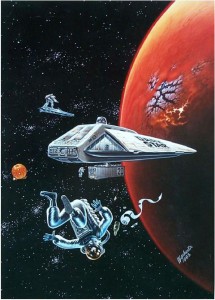
Seriously. If you play RPGs, you need to see this movie.
Finally, Void Hunters would not be complete without a system for altering the mental state of the characters so that the effects of psychological horror can be brought into the game. After hearing about Torchbearer and how they are handling hunger, thirst and so on, I’m thinking of introducing a number of mechanically defined states, like paranoia, fear, and so on that can be incurred during play.
Most will be temporary, and can be relieved by returning to the safety of the ship (if the ship isn’t harboring some alien monstrosity that is stalking the crew, that is) or by other means, like psychological counseling back at a friendly base station. Some, however, will have the potential for causing permanent psychological damage so characters who remain in the void for too long will start to mentally resemble the crew of Dark Star.
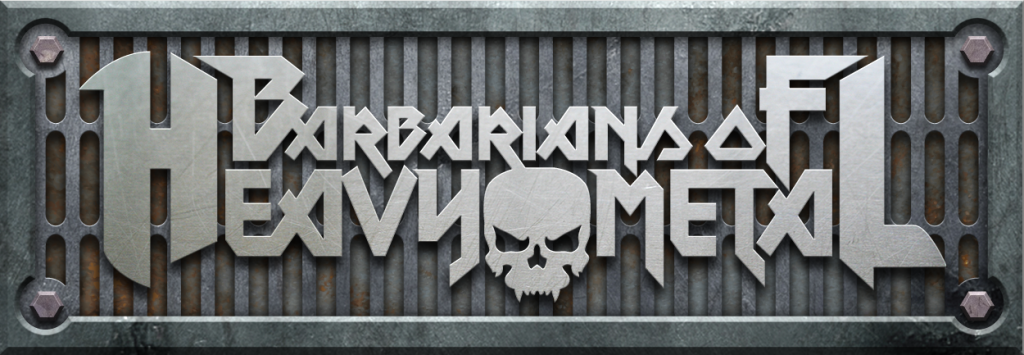 Before I get started talking about the ‘works’ this week, I’d like to point out that I’ve disabled the comments section of The Vorpal Mind because I just couldn’t control the spam. In one week, I received some 2000 comments that were related to fake guichi bags, Dr. Dre beats, Nikes, Chinese Gibberish, etc. and there is not enough time or desire in my life to filter the damned things, so I just turned the whole shebang off.
Before I get started talking about the ‘works’ this week, I’d like to point out that I’ve disabled the comments section of The Vorpal Mind because I just couldn’t control the spam. In one week, I received some 2000 comments that were related to fake guichi bags, Dr. Dre beats, Nikes, Chinese Gibberish, etc. and there is not enough time or desire in my life to filter the damned things, so I just turned the whole shebang off.
 Uli Hammet, a Yngwie Gladiator, in his Blitzkrieger class AX3-YNGW13 AXEMASTER
Uli Hammet, a Yngwie Gladiator, in his Blitzkrieger class AX3-YNGW13 AXEMASTER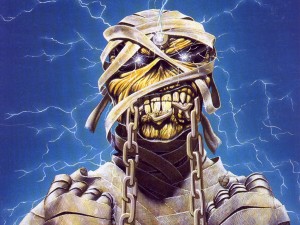 with the surname of another), or, in the case of Nicodemus, famous artists. The same goes with the Titan names, which are a satirically metal take on the model numbers/names of the old Battletech mechs, using metal terminology, band names, and song and album titles.
with the surname of another), or, in the case of Nicodemus, famous artists. The same goes with the Titan names, which are a satirically metal take on the model numbers/names of the old Battletech mechs, using metal terminology, band names, and song and album titles.

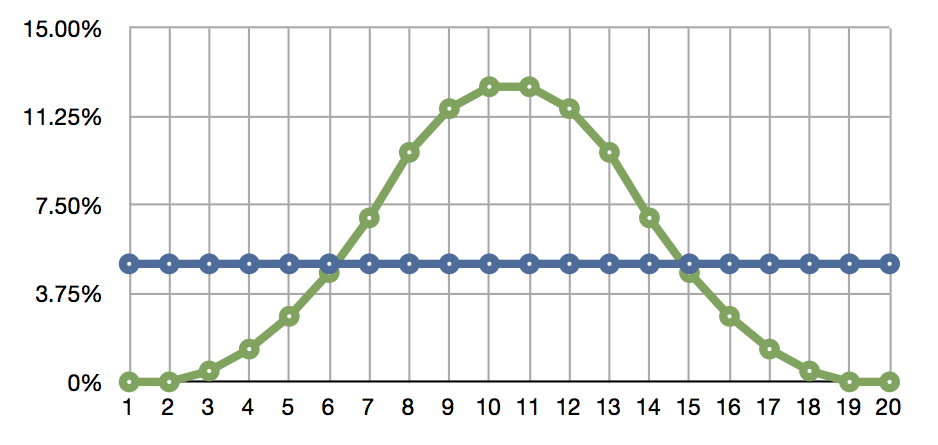
 Ego is Grit for the mind. It represents the reservoir of will and mental energy that keeps a character from giving up or going insane, which is why Psions, who rely heavily on it to power their abilities, often teeter on the edge of mental collapse and madness. Losing all your Ego means you go out of control and start picking up psychosis. It recovers much more slowly than Grit, and only after the character has returned to a place of stability. One of the character careers, the Voivode (formerly the Officer) specializes in Ego recovery, like a Cleric for the mind.
Ego is Grit for the mind. It represents the reservoir of will and mental energy that keeps a character from giving up or going insane, which is why Psions, who rely heavily on it to power their abilities, often teeter on the edge of mental collapse and madness. Losing all your Ego means you go out of control and start picking up psychosis. It recovers much more slowly than Grit, and only after the character has returned to a place of stability. One of the character careers, the Voivode (formerly the Officer) specializes in Ego recovery, like a Cleric for the mind.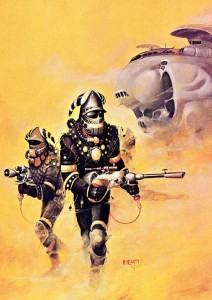 VOID. Characters will earn from failure as well as success by leveling after completing a number of adventures equal to their next level, regardless of the results. So a 0 Level Red Shirt need only survive their Mass Conversion mission to achieve Level 1 whereas a Level 2 will need to go on 3 mission to advance to Level 3.
VOID. Characters will earn from failure as well as success by leveling after completing a number of adventures equal to their next level, regardless of the results. So a 0 Level Red Shirt need only survive their Mass Conversion mission to achieve Level 1 whereas a Level 2 will need to go on 3 mission to advance to Level 3.